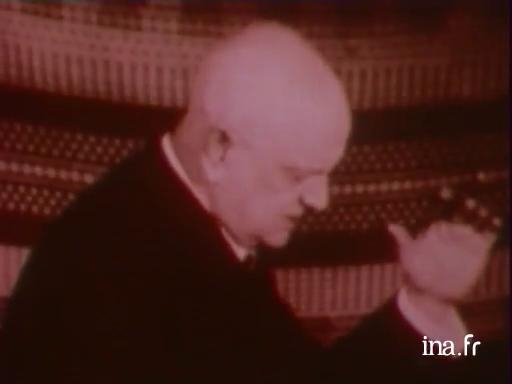Jean Sibelius

Information
Portrait of composer Jean Sibelius (1865-1957), a symbol of Finnish national identity and creator of the famous Finlandia and Tapiola.
Context
Born in 1865, died in 1957, the great national composer of Finland. He studied violin that quickly turned towards composition. He created many works but stopped writing in the 30s, perhaps because his style no longer matched the era. He composed numerous symphonic poems, the famous violin Concerto, seven symphonies andFinlandiawhich evoked rebellion in his country against the powerful Russian neighbour. Sibelius was not a revolutionary. Very influenced by Bruckner, Tchaikovsky and Grieg, his work, which hardly ever left the tonal universe knew how to reach an international audience. The cause of this can be found in his link with Finnish folklore, in his clarity and melodic richness and in the expression of the force of nature that, according to Sibelius, only music can translate.


